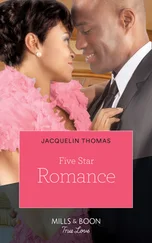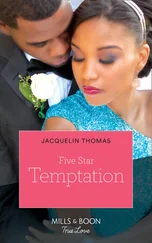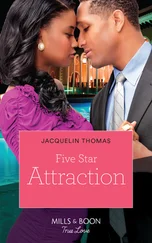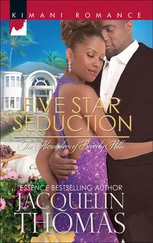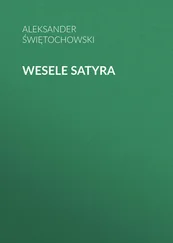That discussion, like so many others, had taken place at Angie’s, which occupied a unit in a modest row of shop lots in Taman Tun Dr. Ismail, surrounded by streets of pleasant, identical suburban houses. Yinghui had opened the café more than a decade before she moved to Shanghai: It was her very first business venture — though nowadays she realizes that it could barely be called a “business.” It was not far from where she had grown up and still lived at the time, a fifteen-minute drive through the grounds of the golf club that, in her childhood, used to be jungle. Justin C. K. Lim’s family had sold the land some years before the crash of ’97, when the property boom was in full swing, and before long the golf course, designed by a famous American golfer, had been completed, its velvety undulating terrain and neo-Grecian clubhouse bounded by a private road manned by Nepalese security guards. It had been a shame to lose the vast patch of forest, but it did make the commute between the smart middle-class suburbs in that part of the city so much easier.
Every day, when Yinghui drove to the café, she passed the small cemetery where Justin’s grandmother was buried. The family burial ground had been excluded from the sale of the golf club and now lay protected by a pair of ancient banyan trees whose thick vines lent a curtain of privacy, shrouding the elaborate tombs from open view. Often, she would slow down as she drove past, watching out for signs of recent visits, but there was never anyone there, not even an old retainer or gardener. And yet the tombs were clean and neat, the forest kept at bay. It was exactly the way that family worked: silently, mysteriously, efficiently, as if they had been and would be there forever. It used to make her laugh, this little reminder of her growing involvement with the Lim family — there was her steady relationship with Duncan C. S. Lim, of course, and now she was driving past and paying her respects to his ancestors every day, as though she were already part of their clan. She was not even formally engaged to Duncan C. S. Lim, and yet her daily rituals anticipated a marriage in the not-too-distant future. They were a good match; everyone said so. Right kind of family, right kind of education, that sort of thing. But Yinghui and Duncan knew that it was something else that counted: the right kind of temperament.
The younger of the two boys, C.S. was, predictably, the polar opposite of Justin: willowy and almost fragile in appearance, but opinionated and temperamental. He lacked Justin’s athleticism and conventional good looks, but his angular features coupled with permanently disheveled hair and an artfully messy way of dressing made him a striking figure. He and Yinghui had started to date just before they left Malaysia to attend university in London, he at University College, she at London School of Economics. He studied philosophy, she sociology and politics — subjects that their parents only half jokingly called “useless.” It was this uselessness that bound them together, Yinghui knew, as well as the appreciation that they were the children of families who could afford to be indulgent and who had assigned different roles to each of the children. They both knew that their role was to be beautifully useless.
And so they spent all their time proving that they were not useless rich kids. In London, while their friends spent long evenings in the student bar, they would seek out talks by obscure Eastern European writers on such topics as “Ideas of Beauty in Post-Communist Guilt” or attend lectures on Sanskrit texts at the Brunei Gallery. They once went to a reading by a Chinese novelist whose latest work contained no fewer than seven scenes of heterosexual anal sex and four instances of sadomasochism, which led to a furious audience debate on the nature of censorship and prudishness in Asia, which in turn provoked a late-night argument between Yinghui and C.S., after which they had sex — rather more timidly than the characters in the novel they’d just read, they laughingly agreed the following morning.
In their second year, they decided to take the same course in political thought at the LSE. They would sit in lectures holding hands under their desks while formulating opinions on Milosz and Aron and Sartre, and afterward they would always go for dry-fried noodles at a small restaurant in Chinatown, where they would exchange views with a vehemence that matched the strength of their growing relationship. He always played the role of the cynic, arguing that man had succumbed irreversibly to the unquestioning nature of authority; she was the wide-eyed optimist, believing in man’s capacity for redemption. And although their debates were genuine in their ferocity, there was also a comforting quality to them — a feeling of permanence, as if the passions they felt at the time would accompany them into old age.
During vacations they would often go InterRailing, their reassuringly heavy backpacks a constant reminder of their independence and liberty. They had a preference for youth hostels and never stayed in anything fancier than a one-star hotel, though arriving late in Bordeaux one night after a missed connection, they were forced by a lack of options to check in to a three-star hotel, which Yinghui secretly enjoyed but never admitted to. Everywhere they went, they made sure they found interesting fringe-theater productions or alternative-music venues, and they never bought anything outside local craft fairs. Toward the end of their time at university, however, they began to spend more and more of their vacations back home in Kuala Lumpur, where C.S. worked with a charity for leprosy victims and set up a salon for “writers and thinkers” that met once a week. Yinghui volunteered twice a week at a refuge for victims of domestic abuse and the rest of the time helped out in the office of Friends of Old KL, a charity that sought to preserve heritage buildings. Dressed simply in jeans or cargo shorts and matching Che Guevara T-shirts they’d bought in Camden Market, their hair styled in similar fashion — short, boyish, with cheeky bangs that fell across their foreheads — they looked like beautiful twins who were fully comfortable only in each other’s company and whose lives would always be entwined. That was certainly the way Yinghui felt.
The idea to set up Angie’s came as a result of the growth of C.S.’s thriving literary salon, which was beginning to tire at the effort of finding a new place to meet every week. There were now more than a dozen regulars, and often the group ran to twenty or so — a difficult size because they were starting to read their work aloud and there were few places where they could do that outside private homes, nowhere they could just drop in during the day and find someone to chat with. They tried a few places in Bangsar, but the atmosphere there was becoming too elegant and overtly bourgeois, and, besides, the area was beginning to attract too many Westerners, the type who thought it was cool to hang out with the locals.
And so, the year Yinghui graduated, she set about finding a suitable place to establish a small café. She already had a clear idea of what she wanted: a cozy, unfussy place that served simple organic meals and pastries and fair trade coffee, locally sourced; in the evenings she would host readings and poetry recitals and maybe even songwriters wanting to try out new tunes before a discerning audience. She had no business plan, no financial model, no idea even of how she would make money; all she had was a generous loan from her parents, which she swore to repay at some point in the future, although she, like they, knew that even if she did not, nothing would be said, and the entire venture would go down as a “lesson in life.”
It took her only a few days to find somewhere perfect, in a residential area that at the time was not at all fashionable. Flanked on one side by a small lottery shop and the other by an old Chinese grocery, the space had been empty for over a year and had last been used as a Nasi Kandar store, whose owner had lost interest in running a restaurant business after returning from the hajj. It was the nondescript nature of the area and the row of shops that thrilled Yinghui — the café would be so unexpected in such surroundings that most people would drive past without ever noticing it. Only people who knew it was there would come in; it was better than she could have hoped for.
Читать дальше
Конец ознакомительного отрывка
Купить книгу
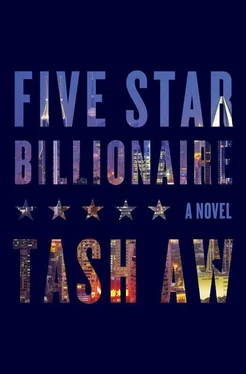
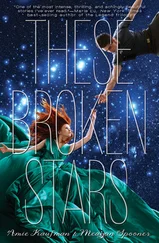
![Scott O’Hara - Five-Star Fugitive [= Border Town Girl]](/books/432138/scott-o-hara-five-thumb.webp)
